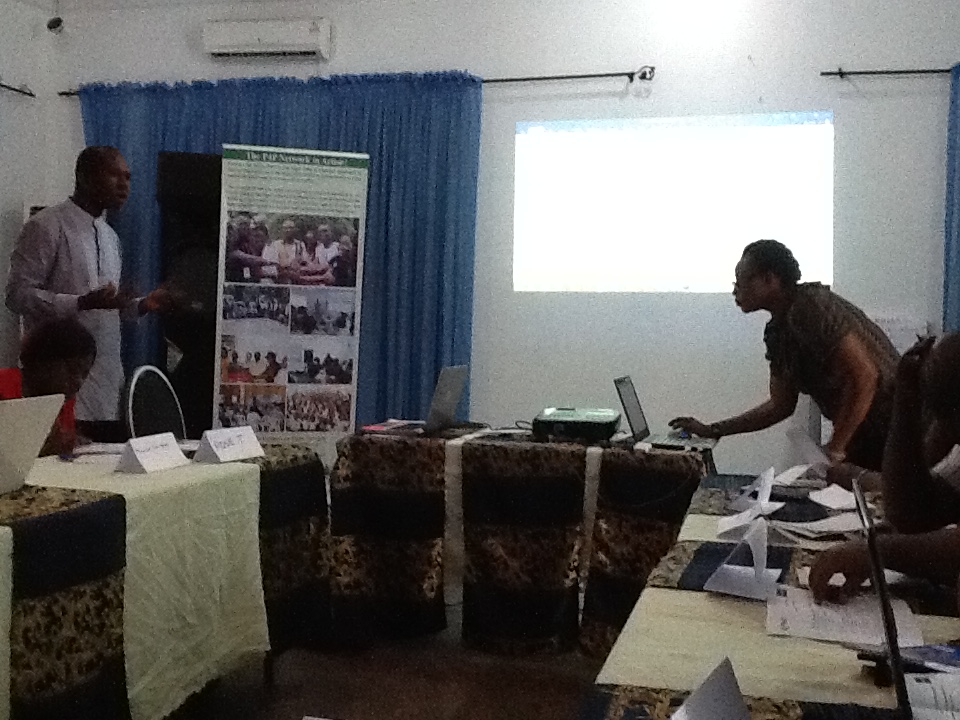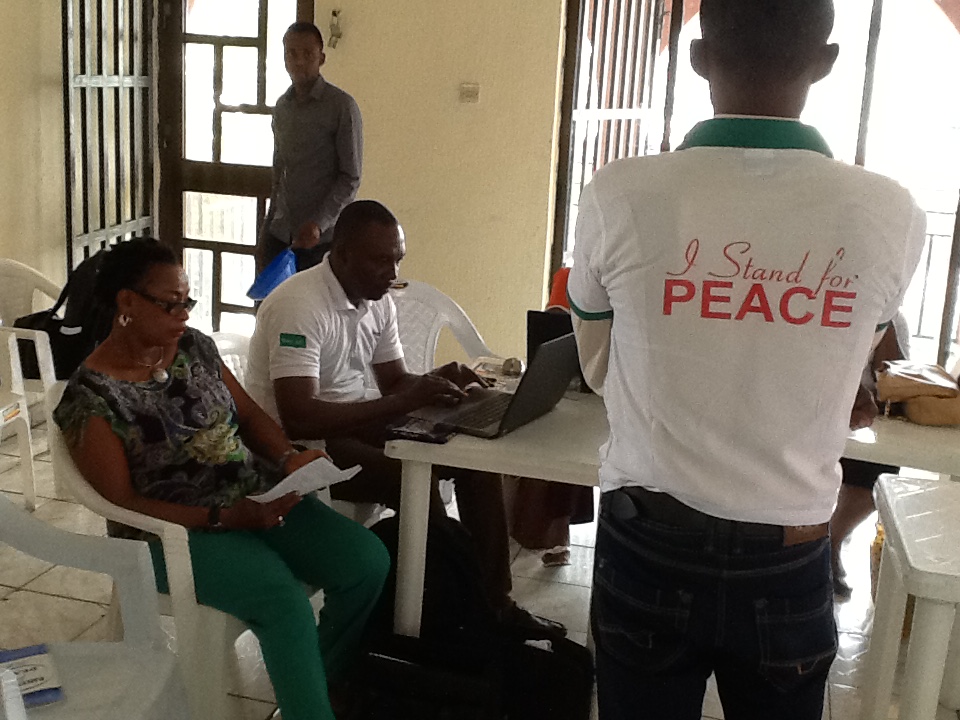Early Warning Early Response Reporting System In Conflict Tracking
Dec 15, 2018
Story


We live in a world full of conflict, violence and uncertainties. All over the world and lives of humans there are conflicts. Humans have personal conflicts dogging them at every point, so also communities and countries because of choices and decisions taken. Conflict is a natural phenomenon, that is not bad; but the management and outcomes of conflict could make it positive or negative.
Conflict is a form of natural competition over perceived or actual incompatible goals, values or limited resources which could include “struggles over resources, ideas, values, wishes and deep-seated needs”
Conflict is expressive, dynamic and dialectical in nature and it’s relationally born out of human meaning and perception that constantly change by ongoing human interactions and continuously change the very people who give it life according to their social environment in which it evolves and possibly ends. Handling of these conflicts depends on the way it is perceived and this perception depends on the socialization, education and experience of the people involved.
Violence is an outcome of ill managed conflict. Violence according to World Health Organisation “is a physical force or power, threatened or actual against oneself, another person, group of persons, or community that can either result in or has a high likelihood of resulting in injury, psychological harm, mal-development or deprivation”.
Uncertainty is something that is not known but one is aware by natural instincts and premonitions that may happen but do not know how, where, when or what form it could take.
Therefore, Early Warning Reporting System is the real-time assessment of events that are likely to cause or trigger escalation of disasters and dissemination of relevant information to stakeholders for strategic action. It is a process of gathering, volunteering and analysing information of dangers or triggers noticed in ones area of work, residence, community or school to relevant agencies for analysis before sending out to for populace consumption.
A Warning is a cautionary advice or advance notice of something pending. It could be something that makes one understands that there is a possible danger or problem, especially one ahead of you or in the future like different graphic signs on the road at different interjections. The essence of this warning is to prevent, mitigate or prepare for appropriate and timely actions.
Early Warning System is a tool or structure that rigorously and systematically track signs, signals and indicators that correlate or relate to potential conflict, hazards or disasters; while Early Response is any initiative embarked on at the early stages of conflict or disasters with the aim of reduction, prevention or preparedness.
This reporting system has been tremendously effective to Peacebuilding in Nigeria especially in the Niger Delta Regions where Foundation for Partnership Initiative in the Niger Delta (PIND) have instituted it. Its effectiveness largely and greatly depends on collaboration of stakeholders and volunteers. It calls for “All Hands on Deck” as it requires multi-stakeholders’ collaboration at each stage in the warning-response process. These collaboration help to increase information sharing, including people’s perception of risks which ensures that the system actively engages response actors and stakeholders involved in preparedness to act.
State and non-State peacebuilding actors – women, girls, boy, men and even school children have been rigorously trained and retrained on the use of this system in other to keep everybody at alert to report any perceived danger or trigger at any time. Security Agencies have also been trained on this system and how to respond to the security trackers which is the outcome of the early warning analysis.
A hot telephone number has been set up to receive these messages in its special format which employs the use of Short Messaging System (SMS). Whenever volunteers witness or perceive any trigger or danger wherever they are, the person is to quickly send a text message to the stipulated telephone number in the format below
- State (Use State codes – Different States of the 9 Niger Delta Region has a special code)
- LGA – (each local government also have a special recognized short code)
- Place (short codes was also designed for each neighbourhood)
- Date( date of the event in this order 31/01/2018 is to be used)
- Description of incident (Be specific, clear & brief, and include gender of victims).
Issues to consider when reporting incidences to be sure that reports will be properly received and documented:
- Message has to be clear and specific
- The report can contain more than one SMS page (i.e. 140 characters) but it is advised that it be made it as short as possible. An automatic confirmation message is sent as soon as the report is delivered to the platform.
- Voice calls could be made (if necessary) to verify and confirm reports and to correct incomplete and unclear information.
- Description should not be too long or too short. It should cover all the necessary details. Acronyms: could be used but they should be popular ones like EFCC, NPF, ICPC, etc
- Figures in description: Figures such as 1,2,3 should be used rather than spelling out the figures in words (e.g. one, two, three)
- Slangs: Avoid the use of slangs (e.g. ‘2’ instead of ‘to’, ‘4’ instead of ‘for’ etc.) in the description so that the information can be understood.
Types of Incidences to report:
- Land/boundary disputes, Communal conflict, Herdsmen/Farmers conflict, Flooding;
- Political/Election Violence, Ethnic/Religious Violence;
- Armed robbery, Bank robbery, Piracy, Kidnappings, Ritual Killings, Mob violent;
- Militancy, Attack on Oil and Gas Pipelines, Attack on Electricity Facilities, Vandalism Oil Bunkering, Oil Spillage;
- Cultism, Domestic Violence, Rape, Human Rights Abuse, Human Trafficking, Mass deployment of security forces;
- Abuse by Security Forces, Extortion, Riots/Protests;
How the reported incidences are used
- To provide reliable and accurate information to guide stakeholders in the planning and implementation of peacebuilding interventions
- To guide peace actors, including the P4P chapter members, in conflict mitigation and prevention
- To assist the P4P network to understand the conflict situation in their localities and carry out targeted interventions.
- To provide accurate information to influence decision making in relation to early response to crisis in Communities, Local Government Areas and States




